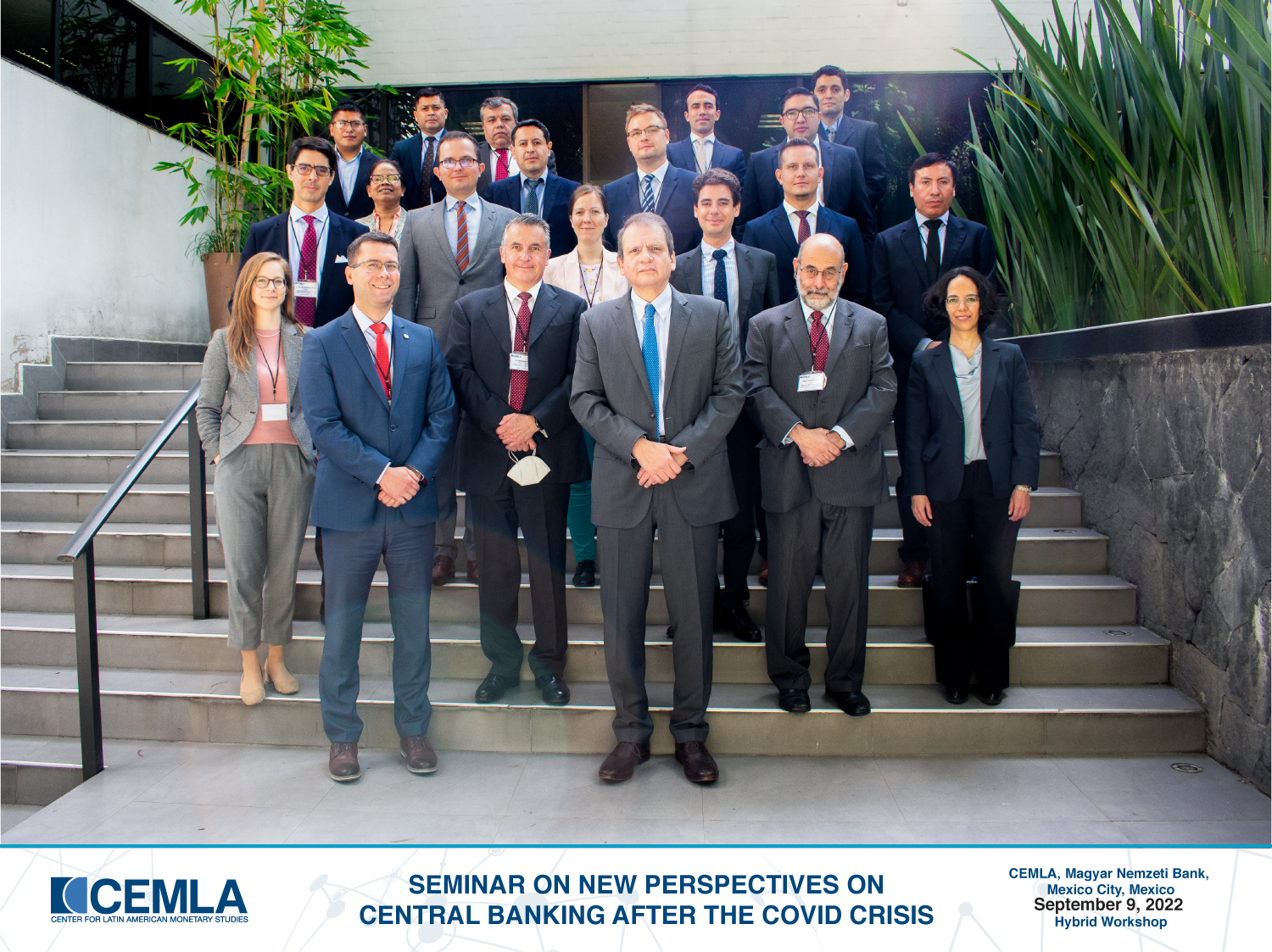

Disponible en
Español
![]()
Seminar on New Perspectives on Central Banking after the COVID Crisis
September 9, 2022
Hybrid format
CEMLA, Magyar Nemzeti Bank
The seminar was held in hybrid format on September 9, 2022, and was attended by 78 representatives from 17 institutions and associates of CEMLA, representing 15 countries from Latin America, the Caribbean, and Canada, 1 European country, and 1 Asian country.
The seminar was jointly organized with the Magyar Nemzeti Bank and covered the following topics: the current outlook for inflation, competitiveness and the long-term economic outlook, liquidity in the banking sector and financial markets under monetary tightening, and the experiences and implications in regulatory terms of Central Bank Digital Currencies (CBDCs).
Participants discussed the conditions driving the current high inflation scenario, emphasizing the repercussions of the COVID-19 crisis and the ongoing war in Ukraine, reflecting on the different policies enacted to address inflationary pressures. The discussions highlighted how tighter monetary policies have put additional strains on bank funding and market liquidity in smaller economies. Finally, participants discussed the ongoing developments in CBDCs and other digitization technologies in the region.
Some relevant takeaways from the seminar were the following:
- The widespread impacts of the pandemic on the global economy will have long-lasting effects. The consequences of the pandemic, such as the deterioration of human capital, the change in production networks, and the changes in preferences of consumers and workers will influence the behavior of inflation in the upcoming years.
- Competitiveness is still a widely employed concept in the study of prosperity. Competitiveness in Latin America face the challenge of addressing important historical problems in the region, such as income and gender gaps and informality, among others.
- The adoption of CBDCs or new digitized technologies in central banking require an evolving process based on reputation, simplicity, accessibility and trustworthiness.

